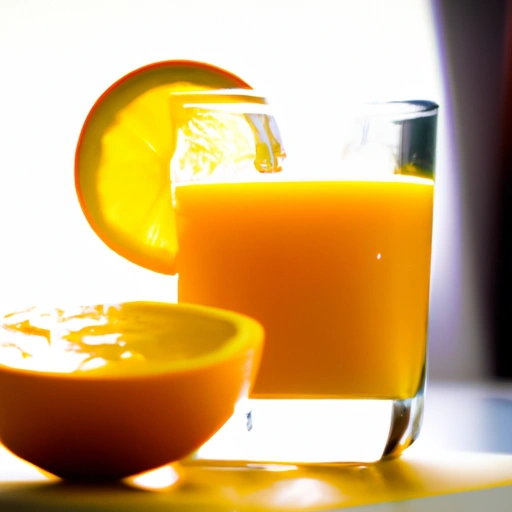Orange Juice
Description

Orange juice is a liquid extract of the orange tree fruit, produced by squeezing or reaming oranges. It comes in several different varieties, including blood orange, navel oranges, valencia orange, clementine, and tangerine. As a popular morning beverage in many cultures, orange juice is appreciated for its refreshing taste, nutritional benefits, and versatility as an ingredient in a wide array of dishes. It is commonly available in different forms such as fresh-squeezed, concentrated, and commercially processed. In recipes, orange juice is measured in various units, including milliliters (mL), liters (L), fluid ounces (fl oz), cups, and tablespoons (tbsp), catering to both the metric system used in Europe and the customary units in the United States.
Common uses
Orange juice is used both as a standalone drink and as a key ingredient in various culinary preparations. It is a staple at breakfast tables, often served cold. In cooking, it is used to add flavor, moisture, and acidity to dishes, enhancing the taste profile of sauces, marinades, dressings, glazes, and baked goods. Orange juice is also a popular mixer in cocktails and mocktails, providing a citrusy tang that complements many spirits and other mixers.
Nutritional value
Calories
A standard serving of 8 fl oz (about 240 mL) of orange juice contains approximately 110 calories.
Protein
Orange juice provides about 2 grams of protein per 8 fl oz serving.
Fat
Orange juice is naturally low in fat, with less than 0.5 grams per serving.
Carbohydrates
Most of the calories in orange juice come from carbohydrates, primarily sugars, with about 26 grams per 8 fl oz serving.
Vitamins
Orange juice is an excellent source of Vitamin C and also provides folate, thiamin, and potassium.
Minerals
It contains essential minerals like potassium, magnesium, and calcium, though in smaller amounts.
Health benefits
Rich in Vitamin C, orange juice is known for its immune-boosting properties. It also contains antioxidants that help protect the body from free radicals. The folate content is beneficial for DNA synthesis and repair, making it important for pregnant women. Moreover, the potassium in orange juice helps regulate blood pressure and heart health.
Potential risks
While orange juice has many health benefits, it is also high in natural sugars, which can contribute to increased calorie intake and potential weight gain. Overconsumption may lead to blood sugar spikes, and the acidic content could contribute to dental erosion. Those with citrus allergies or conditions like gastroesophageal reflux disease (GERD) may need to avoid orange juice as well.
Common recipes
Orange juice can be found in a variety of recipes, including orange chicken, citrus-based vinaigrettes, orange-glazed salmon, smoothies, and baked goods like orange chiffon cake or pancakes.
Cooking methods
It can be used in simmering, baking, blending, and as a base ingredient for marinades and sauces.
Pairing with other ingredients
Orange juice pairs well with flavors such as cranberry, almond, vanilla, cinnamon, and many other fruits and spices. It also complements savory dishes, especially those with poultry or seafood.
Summary
Orange juice is a widely beloved beverage that also plays a significant role in culinary arts across the globe. With its history dating back to ancient times, it has evolved into a multi-faceted ingredient that can be found in kitchens everywhere. Whether used for its bright flavor, nutritional benefits, or as a key element in recipes, orange juice continues to be a favorite among home cooks and professional chefs alike.